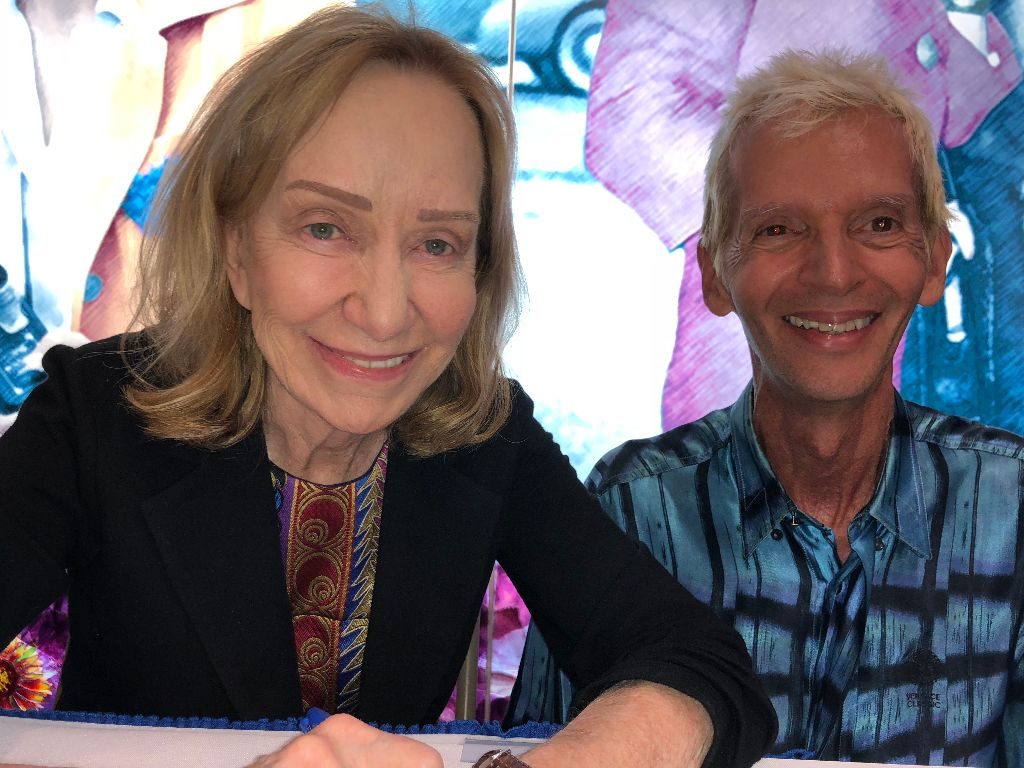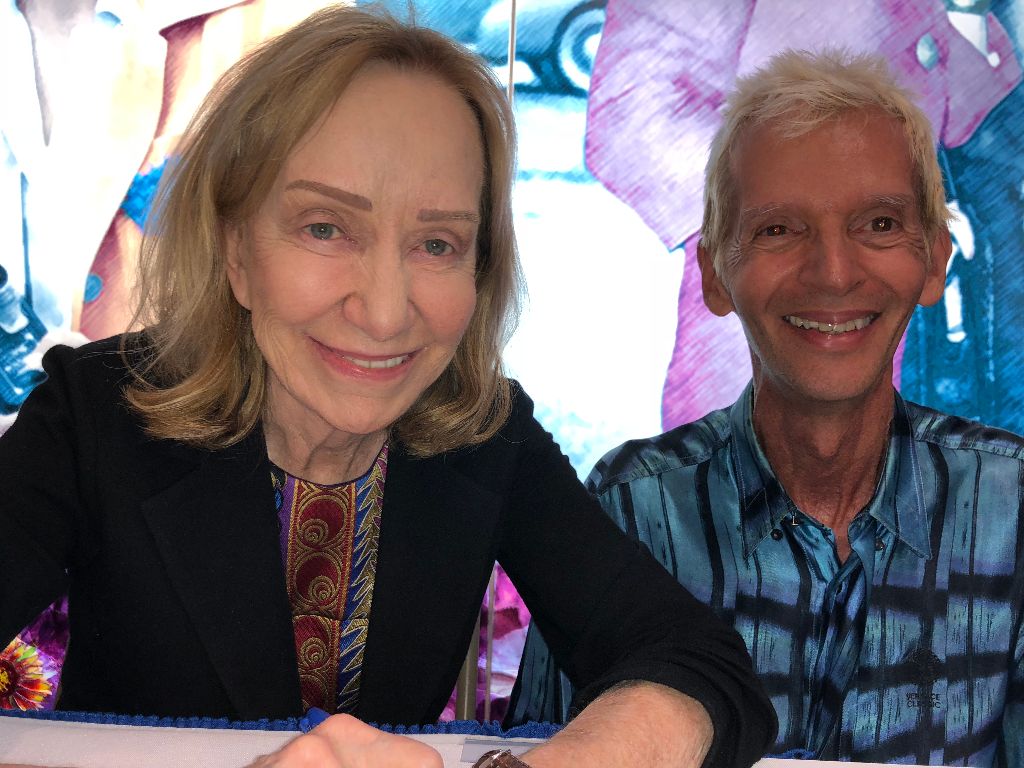
Goodwin regaled an audience at the LBJ Presidential Library with insights into the four presidents she has featured in her book, Leadership, just published this month. After signing copies in the lobby, she told a capacity audience of her delight in returning to Austin. “I’m so glad to back here: 50 years, O my God!” Goodwin was in the area many times as she worked with President Lyndon Baines Johnson (LBJ) on his memoirs. Visuals before her conversation on stage with LBJ Foundation President Mark Updegrove showed her in the Oval Office with Johnson 50 years ago.
Goodwin said LBJ “knew how to appeal to the idealism of people. He always wished power could be used to help people and as president he could do it. Even on his first night as president in Nov. 1963 he told people the things he wanted to do. It is unbelievable he said it that night, and by God he did it.” Even as a senator he got the first civil rights bill through the Senate. As president, Goodwin said, “he decided to make civil rights his priority. The foundation of so much of our lives is due to LBJ.”
Asked what led Goodwin to write the book Leadership, she said that after completing a biography of a president she had to shuffle all those research papers away to make room for the next subject. “I always felt like I was leaving an old boyfriend behind,” she quipped. As a young researcher she pondered questions such as “Where does ambition come from?” and “Is leadership born or is it made?” Trying to answer these questions led her to revisit four of the presidents she had written about: Lincoln, Teddy Roosevelt, Franklin Delano Roosevelt (FDR) and Johnson.
“American history is short,” Goodwin stated. “Johnson’s hero was FDR. His hero was Teddy. Teddy’s hero was Lincoln. Tracing this line of heroes, Goodwin said LBJ “was the most natural politician of them all.”
Each “led in turbulent times” but it was their temperament that allowed them to meet the challenges of the day. For FDR, Goodwin said his temperament was “a sense of optimism, and he projected his optimism. He stopped the downward slide of psychological understanding with his fireside chats on the radio. In the very first one he told people money makes the wheels of commerce go around. The people were behind him and they started bringing their money back to the banks” which were on the verge of total collapse. “He was able to establish trust in the people.”
In studying Teddy Roosevelt, Goodwin admitted “he had more restraint than I thought he had. He was able to ratchet down his fiery personality” when circumstances demanded. This was never more needed than during the coal strike of 1902, which threatened the nation’s economy. Back then coal was the prime energy source, including home heating. Instead of forcing the labor leaders into a corner, “he understood the importance of saving face.” To tamp down his own instincts, “Teddy would read about Lincoln holding back his rage.” One outlet for Teddy was vigorous exercise, which he would do two hours every afternoon.
To banish the dogs of war, FDR would hold a “cocktail party every night.” Guests were welcome “as long as you didn’t talk about the war,” Goodwin explained. Lincoln found solace in the theatre, which he attended 100 times during the Civil War. “Johnson is something of an outlier,” Goodwin said. “He didn’t unwind easily,” often talking during the screening of a movie.
Of Lincoln, she identified his leadership as two sides of a coin. “He was confident but had humility, was patient but could move on, was merciless in continuing with the Civil War but merciful in issuing pardons.”
Key to success for a president, said Goodwin, is that one “must master the transition from campaigning to governing. You have to govern as a unifying force, and you can’t govern unless you expand your base.” And just as important, “think before you say something that is going to divide the country.” While she did not mention the current president by name here, the message was obvious.
“Why are we in this situation?” she asked. “The most important lesson from the book is just remember that when we have leaders great things can happen. We must act instead of obsessively observing what is happening. Nobody can be a spectator anymore.” Looking back to the 1960s, Goodwin wishes she could “catapult young people back then to see what public service is all about. We will ever live in such a time again? We will, I promise.”
Photo by Dr. Matt Emanuele, Sun News exclusive
